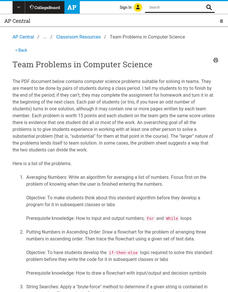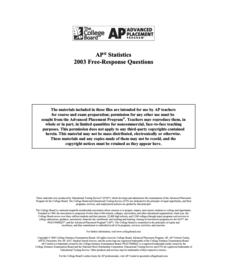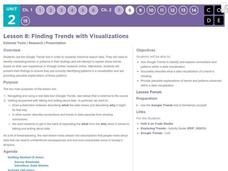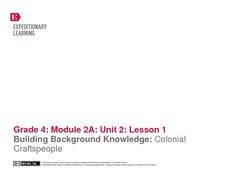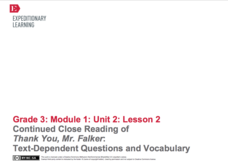Microsoft
Back to School Welcome Letter
Here is a basic and organized template that will help get you started on a welcome letter for parents at the beginning of the school year. It will help guide you in considering the primary components to include your...
Curated OER
Current Events Rubric
Here is a rubric that can be used for your next current event assignment. It details what should be included in each paragraph of the event description and analysis, as well as other requirements for work habits and presentation.
Shelby County Schools
Atomic Structure Worksheet
Teaching young scientists about atoms is no small task, but this series of worksheets will make it a little easier. From creating and labeling Bohr models, to identifying information provided in the periodic table of elements,...
K12 Reader
What Do You See? (Inferences)
Making inferences is a skill that goes beyond the comprehension of written text. In this simple exercise, young learners are provided with a photograph and asked to answer a series of inference questions using only on the...
College Board
Team Problems in Computer Science
There is no I in team. Seven team problems provide classmates the opportunity to work with a partner on a task. Projects span the course and require pupils to apply their knowledge. Tasks range from writing the algorithm in English to...
College Board
2003 AP® Statistics Free-Response Questions
Hypothetically, knowing the structure of a test should help. Pupils use the released free-response questions from the 2003 AP® Statistics exam to become aware of the structure of questions on the test. Half the questions in the set...
Maine Content Literacy Project
Introduction to Literacy Criticism
As learners continue to examine a short story of their choice, they take some time to look at analysis completed by others on the same story. In the eleventh lesson in a series of fourteen, pupils explore various sites for literary...
Code.org
APIs and Using Functions with Parameters
Introduce your class to the API, a reference guide that lists and explains the functionality of programming language. Using JavaScript, individuals draw complex designs that require additional commands and parameters defined in the...
Code.org
The Need for Algorithms
Pairs work through two scenarios that require them to generate an algorithm. The first activity requires pairs to define a common language to use; the second comes with the language. The pairs then must determine how to code the...
Code.org
Finding Trends with Visualizations
Pupils often hear about trends, but they don't always see them. The eighth lesson plan in a unit of 15 requires individuals to use the Google Trends tool. Class members identify patterns in the visualization before presenting the...
Indiana Department of Education
Voting: It's Not a Spectator Sport!
Why is it important to vote? Who is eligible to vote? Why is it that some eligible voters do not vote? Class members conduct interviews with adults and other school mates before researching the eligibility requirements for their state,...
Curated OER
Conferences and General Courses Framework for the Law Elective: Mainstreaming Law-Related Opportunities in the Local Curriculum
Students study background information on the laws and customs that make up our legal system, our legislative system, and our executive branches of government.
Harper Collins
If You Give...Series Teaching Guide
If you give teachers a few good ideas, they can really bring a story to life. Included in this resource are dozens of activities to use as your class reads books in the If You Give... series. From holding puppet shows and creating...
PBS
Shakespeare & The Renaissance: Activity Ideas
Looking for ways to implement the words and works of William Shakespeare into your curriculum? This list of activity ideas is a great starting point, as it covers a wide range of grade levels and a wealth of online references to explore.
Curated OER
Themes vs. Timelines
Teaching history through a thematic curriculum fosters a higher level of engagement and critical thinking in young historians.
EngageNY
Listening Closely and Taking Notes in Expert Groups: Colonial Trade Podcast
The twelfth instructional activity of this unit builds on the skills developed in the previous instructional activity, as fourth graders continue their quest to become experts on colonial trade by listening to interviews with historical...
EngageNY
Building Background Knowledge: Colonial Craftspeople
In the first lesson plan of this unit on colonial trade, fourth graders gain background knowledge of different jobs performed by early colonists. The class begins with a slide show presentation that includes a variety of great...
Curated OER
More Reasons to Love Valentine's Day
Heart-themed curriculum connections that your class will fall in love with.
University of California
Student Workbook: Algebra and Functions
A smorgasbord of functions, this packet has the basics required for your learners to be successful in the land of early algebra. The packet includes solving equations, graphing, evaluating, simplifying and basically everything else...
Richland County School District One
Falling Into Geometry Through Paper Art
New-to-school learners create a fall quilt consisting of three different paper geometric quilt squares. They use various geometric shapes that when assembled will form a scarecrow, pumpkin, and a crow. Assembly will require sorting...
Annenberg Foundation
Service Learning in the Social Studies
Active Citizenship Today (ACT) is a "unique social studies service learning program" that requires students to learn about the public policy associated with community issues they identify in their local community. This web site...
Curated OER
It's Greek To Me!
In this language lesson, scholars use Greek root meanings to determine the meaning of words. After being shown how Greek roots are used in many words, such as, photosynthesis, pairs are given two excellent black line masters...
EngageNY
Continued Close Reading of Thank You, Mr. Falker: Text Dependent Questions and Vocabulary
In the second lesson plan in a series that revolves around the story, Thank You, Mr. Falker, learners practice the skill of answering direct questions from the text while using complete sentences. After a teacher-led review of how to...
John F. Kennedy Presidential Library & Museum
Analyzing the Rhetoric of JFK’s Inaugural Address
“And so, my fellow Americans: ask not what your country can do for you—ask what you can do for your. country.” Did you know that John Kenneth Galbraith, Adlai Stevenson, and Theodore Sorensen helped John F. Kennedy craft his 1961...






